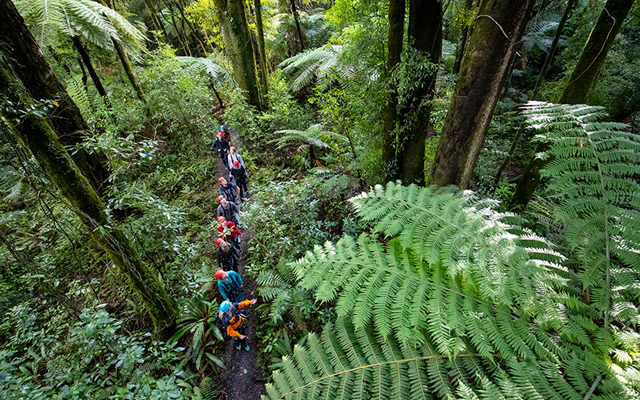The private and public sectors in New Zealand have pledged to the Tiaki Promise – a commitment to care for the land, its people and upholding the sustainability of the country as they conduct their tourism-related businesses.
The private and public sectors in New Zealand have pledged to the Tiaki Promise – a commitment to care for the land, its people and upholding the sustainability of the country as they conduct their tourism-related businesses.
To achieve that, they bestow the responsibility not only upon the local communities and tourism businesses, but also their international business partners and travellers.

Air New Zealand – one of the seven organisations who founded the Tiaki Promise last year – for instance, has worked together with Tairãwhiti Gisborne stakeholders, including local tribe Mãori tribe Ngãti Porou to support the region’s tourism proposition and drive demand for travel, which would translate into more job opportunities for the locals.
Cam Wallace, Air New Zealand’s chief revenue officer, said: “Ngãti Porou shares our belief that Tairãwhiti Gisborne has huge untapped potential. In April 2018, we formalised an agreement to work together toward a stronger region.
“We have purchased carbon credits from the iwi’s (tribe in Maori) forest estates on the East Coast and are committed to supporting Ngãti Porou to promote its Mount Hikurangi tourism venture offshore. We’re also bringing some iwi primary sector products into our customer offering – with Ahia smoked fish among the first of these to be served on board.”
The airline is also working with charitable organisations and colleges to help youth in the regions reach their potential by fostering clear pathways into study and employment through strategic programmes and partnerships, and help build the country’s tourism talent pipeline.
Tourism Holdings (THL), another Tiaki Promise co-founder, whose business ventures include self-drive experiences, motorhome holidays and guided tour programmes, launched electric motorhomes this year.
Saskia Varraes, THL responsible management general manager, said: “We released our first 10 electric motorhomes this year in our fleet. This is exciting as we can now offer customers options to drive around our country without releasing emissions.
“We released this with two targeted responsible travel itineraries to show people that they can drive around beautiful parts of New Zeland, as we have chargers installed. They can also drive slower around places that they normally would have driven past, and enjoy the local opportunities and beautiful photo spots (along the way).”
This is merely one of many steps that THL is taking to achieve its goal to become a zero-emission operator.
Since 2014, Varraes said, THL has been integrating sustainability into its way of working, including introducing “lower footprint activities like glamping, beach clean-ups and giving back to community events”.
Some suppliers rope travellers in to actively participate in the sustainability movement.
At this year’s TRENZ, for instance, Rotorua Canopy Tours partnered with Tourism Industry Aotearoa and the Department of Conservation to bring delegates to set and bait pest traps in a native, untouched patch of forest near Rotorua.
Canopy Tours general manager, Paul Button, said: “We’re really pleased with the trapping results, and that more of the Dansey Reserve is on the way to being predator-free.”
Rotorua Canopy Tours continues to administer the trap line by integrating it into its regular conservation programme in the Dansey Road Scenic Reserve.
“We’re finding that the rats are eating all the possum baits. So we’re going to keep clearing the traps every day until the number of rats caught daily drops,” Button said.
“Once the rat numbers settle down, we’ll be able to get the possums out and have a better sense of the forest’s overall health.”
Napier Maori Tour incorporates into its tours the native wisdom that men must leave this world a better state than when they came into it.
Hinewai Hawalkinangi, owner of Napier Maori Tour, said: “The essence of kaitiaki (Maori term for guardianship) is a person who protects those who are yet to be born. We believe our business is a vehicle for sharing our Maori way of life to the world.
“We aim to connect with visitors to our land by sharing our traditions, history and culture in the 21st century Aotearoa (the Maori name for New Zealand). We invite visitors to plant native plants on our sacred mountain. They can watch them grow over satellite feed and come back to visit them again. The trees will bear legacy in Aotearoa.
He added: “After they return home, we continue our role. Each year, we grow 2,000 native trees and, with the help of our community, plant them alongside our waters.”
This way, both the local community and visitors work hand-in-hand to fulfil the Tiaki Promise.




















